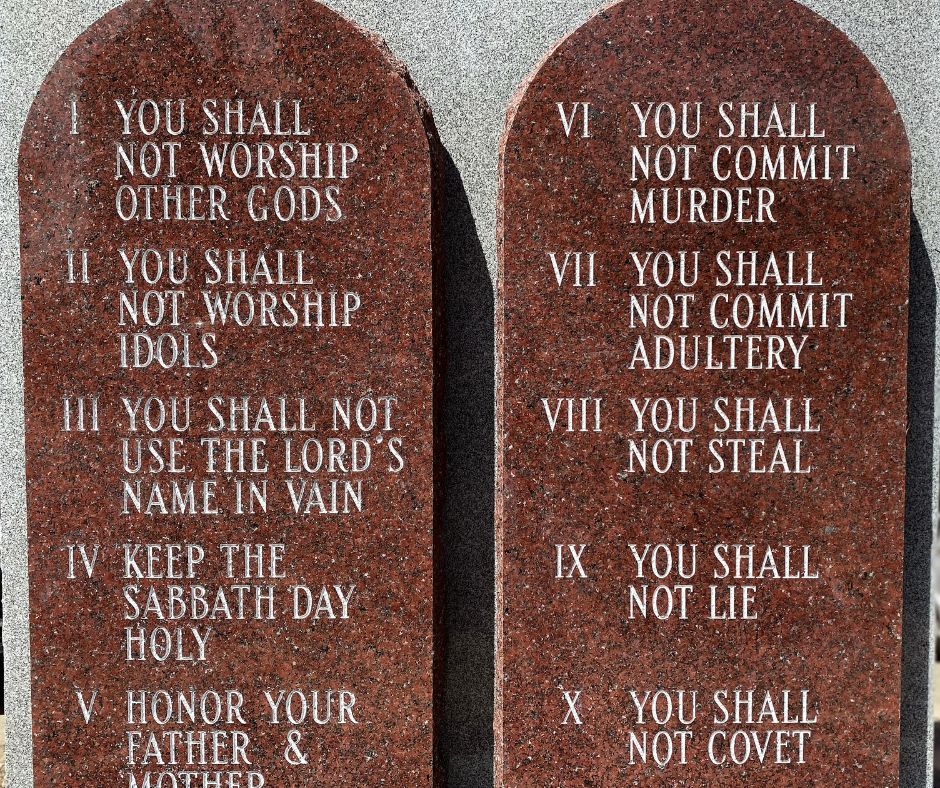The U.S. Fifth Circuit Court of Appeals issued an order Friday allowing Louisiana to post the Ten Commandments in public school classrooms in accordance with the state’s new law, except in the five school districts where parents have challenged the law. The Appeals Court’s order limits the scope of a lower court ruling that initially blocked Louisiana’s Ten Commandments law statewide as unconstitutional. The state is now free to post the Ten Commandments in its remaining 67 school districts beginning January 1, 2025 as litigation continues.
Louisiana state attorneys had filed an emergency motion with the Fifth Circuit arguing that lower court Judge John deGravelles had overstepped his authority when he ordered all 72 school districts in the state be notified that he had struck down the law instead of just the five districts involved in the lawsuit. The Appeals Court decided 2-1 in a one-sentence order to grant the state’s motion for an “administrative stay” which pauses the judge’s notification requirement and only allows his judgment to affect the five school districts with parents officially challenging the law. The Louisiana school districts currently blocked from posting the Ten Commandments are East Baton Rouge Parish, Livingston Parish, St. Tammany Parish, Orleans Parish, and Vernon Parish. The state is appealing to overturn Judge deGravelles full judgment arguing the law is constitutional.
In June 2024, Louisiana enacted House Bill 71 which requires all K-12 public schools and state-funded universities to display at least an 11-inch by 14-inch poster of the Ten Commandments. The displays must have a four-paragraph “context statement” describing the history of the Ten Commandments and how they “were a prominent part of American public education for almost three centuries.”
However, a multifaith group of nine families, consisting of Jewish, Christian, Unitarian Universalist, and nonreligious parents represented by the ACLU, the Freedom From Religion Foundation, and Americans United for Separation of Church and State, have challenged the law alleging the state is endorsing a specific religion.
Louisiana officials defended the Ten Commandments law as constitutionally valid by arguing that it has a historical and educational purpose. They cite the Decalogue’s “historical role” in developing American law and education, which displayed alongside other historical documents, would be permissible under the First Amendment. Since HB 71 also required public school classrooms to display the Mayflower Compact, the Declaration of Independence, and the Northwest Ordinance, the state’s legal team argued that the law’s intent is not to endorse a religion but to teach where America’s longstanding moral values in civic life originate.
Louisiana has considerable grounds for its appeal. Recent Supreme Court precedents show that displaying the Ten Commandments is not necessarily a religious endorsement. In American Legion v. American Humanists Association, the High Court wrote that the Ten Commandments “have historical significance as one of the foundations of our legal system” and represents a “common cultural heritage.” Then, in 2022, the cases of Shurtleff v. City of Boston and Kennedy v. Bremerton School District rejected and overruled the 1971 case of Lemon v. Kurtzman. The High Court replaced the “Lemon Test” by returning to a traditional First Amendment standard where courts must interpret the Establishment Clause by “reference to historical practices and understandings.”
Liberty Counsel’s Founder and Chairman Mat Staver said, “The Ten Commandments is a universally recognized symbol of law and has indelibly shaped the Western Legal Tradition and American government. There are more than 50 displays of the Ten Commandments inside and outside the United States Supreme Court. The Ten Commandments are ubiquitous and their central role in law and government pre-date the U.S. Constitution. With this injunction narrowed to only five school districts, the Ten Commandments will be displayed in nearly all Louisiana public schools.”


















That offers hope again that all of our nation’s children will learn GOD’S morality and that they will grow up in His light & love.